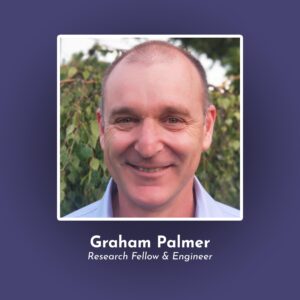
Show Summary
On this episode, Nate is joined by Graham Palmer, a scholar and engineer in the field of energy. While this show frequently covers the importance of energy itself, this discussion focuses on how the ability to store and access energy has critically shaped societies. From agriculture, to wood, to coal, to oil, each transition has marked a new way for humans to interact with the world around them. What would it mean for economic growth if we no longer have access to these storable energies? What does the necessity of storability mean for electricity – an inherently flow-based energy form? Would human societies moving back to a flow-based energy system also mean once again becoming in-sync with the Earth and her ecosystems?
About Graham Palmer
Graham Palmer is a researcher at Monash University, with an industry background as an engineer and researcher in manufacturing, HVAC and electronics. He has published in the area of biophysical economics, renewable energy, life-cycle analysis, and energy-economic modeling. Graham obtained his PhD in the area of energy-return-on-investment (EROI) of electricity supply. His current research interests include the future role of emerging energy storage systems.
In French, we have a motto that says that a simple drawing is often better than a long explanation. Jean-Marc Jancovici Carbone 4 President
That’s very understandable because with left atmosphere thinking, one of the problems is that you see everything as a series of problems that must have solutions. Iain McGilchrist Neuroscientist and Philosopher
We can’t have hundreds and hundreds of real relationships that are healthy because that requires time and effort and full attention and awareness of being in real relationship and conversation with the other human. Nate Hagens Director of ISEOF
This is the crux of the whole problem. Individual parts of nature are more valuable than the biocomplexity of nature. Thomas Crowther Founder Restor
Show Notes & Links to Learn More
Download transcript00:40 – Graham Palmer works, info
Recommended Reading from Graham Palmer:
Will Fossil Fuels Be Able to Maintain Economic Growth? A Q&A with Charles Hall – Scientific American
02:16 – EROI
02:28 – Energy Storage and Civilization: A Systems Approach
04:38 – Wes Jackson – 5 Pools of Carbon
06:51 – Disease increased with the agricultural revolution
07:54 – James Scott Against The Grain
09:09 – Joseph Tainter + TGS Episode
10:35 – !Kung Bushman in the Kalahari Desert
11:24 – Bill Gammage How Aborigines Made Australia
17:16 – Energy quality of oil
17:55 – Shale oil
21:40 – Electricity is a flow, which is what makes it difficult to store
22:36 – TV Pickup
24:43 – Nate’s paper EROI of nuclear and wind handicapped on their storage ability
25:24 – Sharpe Ratio
28:55 – Material intensity of scaling batteries to meet demand
29:39 – Snowy Hydro in Australia cost double or more what expected
31:27 – Challenges of hydrogen
32:33 – Sodium batteries, other battery alternatives
33:41 – Technology lock-in
34:17 – Lifetimes of batteries and other renewable tech
35:05 – Recycling renewable and battery materials
37:02 – Increase in the use of all rare earth metals
41:54 – Australia’s energy transition, energy composition + AEMO Integrate Systems Plan
43:41 – Household Solar Photovoltaics: Supplier of Marginal Abatement, or Primary Source of Low-Emission Power? | Graham Palmer
45:30 – Simon Michaux + TGS Episodes Part 1, Part 2, and Part 3 + work on energy storage and material requirements
50;04 – Buckminster Fuller
51:02 – Sun Cable Project
56:50 – Australian housing crisis
59:59 – Care economy
1:02:03 – Sam Alexander and Josh Floyd
1:02:34 – Technocrat movement
1:03:45 – Vaclav Smil






